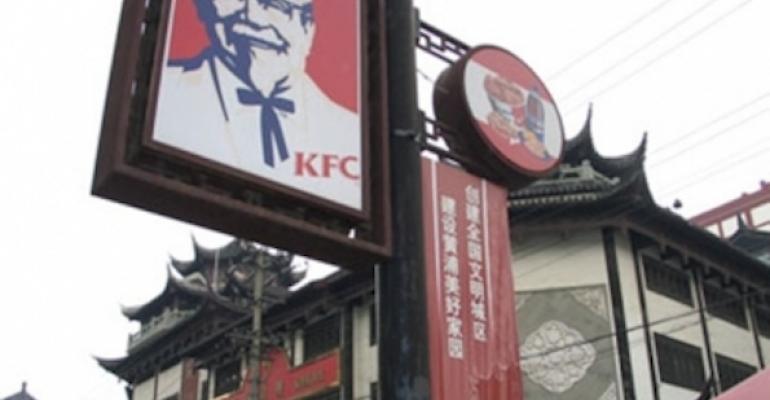 This post is part of the On the Margin blog.
This post is part of the On the Margin blog.
Late on Tuesday, Yum Brands announced a major management shuffle, in which Micky Pant will take over as CEO of Yum China for the retiring Sam Su.
The management changes have only fueled speculation that Yum might spin off the China business amid activist pressure.
Yum Brands is mostly a franchisor of three brands: KFC, Pizza Hut and Taco Bell. The exception is China, where the company has more than 6,800 total restaurants. Louisville-based Yum has been developing in China with company-owned restaurants.
As a result, 39 percent of Yum’s operating profit comes out of China, even though only 16.4 percent of the company’s global units are located in that country.
Activist investors have been buying up Yum Brands stock and want the company to spin off that China business, so that it is a separate company that acts like a Yum franchisee. That would shield Yum from the volatile China business while diversifying its profit base. Same-store sales for the company in that country fell in the double digits throughout the past year following a health scare there, Yum’s second in China in three years.
Activist investor Corvex Management bought $1.5 billion in Yum stock and its founder, Keith Meister, suggested the spinoff in May.
 But in its earnings call in July, Yum executives indicated they were not considering a spinoff. “We don’t want to talk about it,” Yum CEO Greg Creed said, noting that the China team was focused on “getting China back to stronger sales growth.”
But in its earnings call in July, Yum executives indicated they were not considering a spinoff. “We don’t want to talk about it,” Yum CEO Greg Creed said, noting that the China team was focused on “getting China back to stronger sales growth.”
Sales seem to have turned around, however. In announcing Su’s retirement, Yum suggested that sales have been strong so far in the current quarter, which could pave the way for a spinoff.
The management changes would also seem to make such a spinoff easier. Joey Wat, who had been president of KFC China, was named CEO of KFC. Peter Kao, who had been brand general manager at Pizza Hut China, was named CEO of Pizza Hut. Both Kao and Wat will report directly to Pant.
Paul Westra, analyst with Stifel, called an activist-led restructuring at Yum “inevitable.” He expects a recapitalization of the company and “a prospective full or partial spin-off of Yum China” into a master franchisee or as a listing on an Asian stock exchange.
Other analysts have suggested that a spinoff of the China business is probable.
The resignation of Su ends an incredible tenure, one that turned China into a major frontier not just for Yum, but for the restaurant business. Su played a big role in building KFC’s and Pizza Hut’s market leadership in the country, starting in 1989, and the company’s growth there ultimately led to Su’s ascension to the vice chairmanship with the company.
It has also led to something of a restaurant gold rush, with numerous brands looking to take advantage of China’s growing economy by developing new units there.
Westra called Su’s “one of the most successful executive tenures in the history of the global restaurant business over the last 26 years.”
Contact Jonathan Maze at [email protected]
Follow him on Twitter: @jonathanmaze

